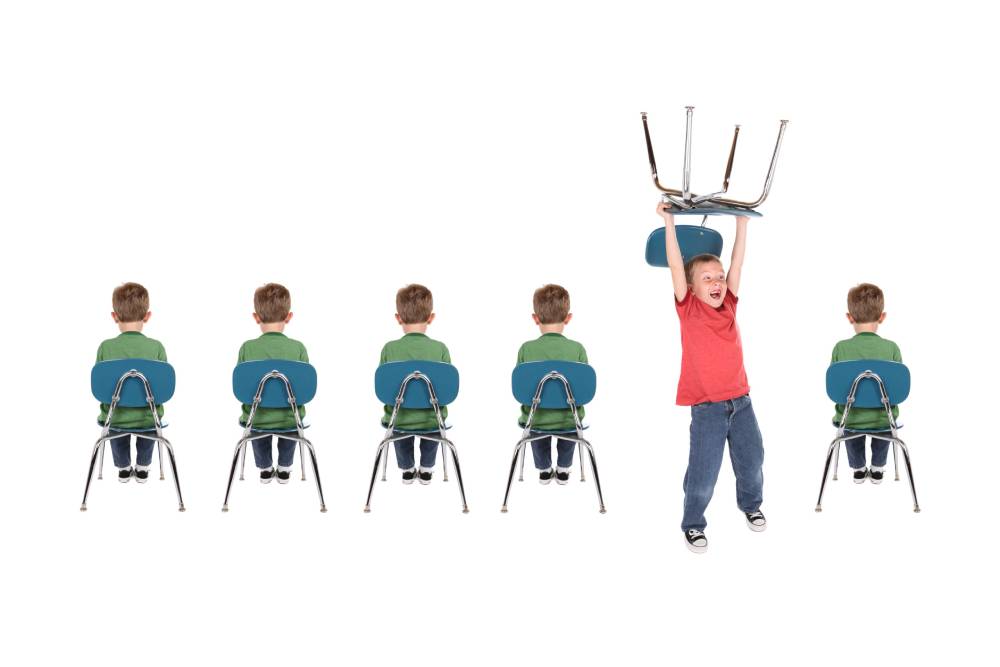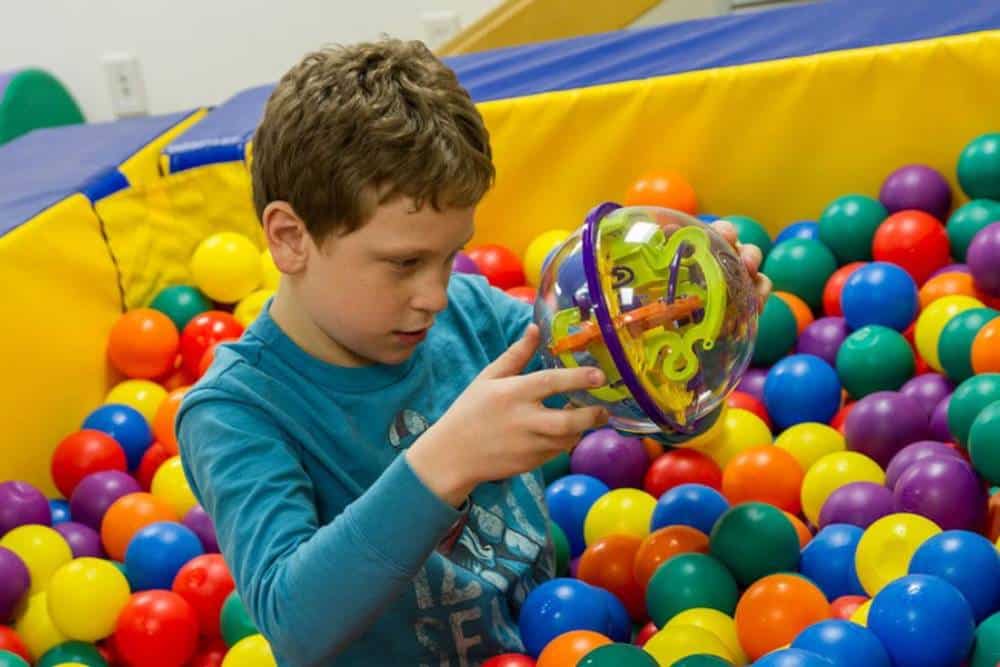Search Our Research & White Papers
>> Download a Comprehensive List of All IM Related Studies <<
Filter Your Results
Interactive Metronome training significantly boosts reading efficiency, fluency, and phonological processing in school-aged children, especially benefiting those with initial poor timing.

Title: Improvements in interval time tracking and effects on reading achievement
Authors: Gordon E Taub, Kevin McGrew, and Timothy Z Keith
Publication: Psychology in the Schools
Keywords:
The addition of Interactive Metronome training to standard rehabilitation care has shown promising results in improving cognitive deficits in soldiers with mild-to-moderate traumatic brain injury.

Title: Effects of Interactive Metronome Therapy on Cognitive Functioning After Blast-Related Brain Injury: A Randomized Controlled Pilot Trial
Authors: Lonnie A. Nelson, Margaret MacDonald, Christina Stall, and Renee Pazdan
Publication: Neuropsychology
Keywords:
Uncover how Interactive Metronome training can outperform recess in enhancing mathematics achievement, offering elementary students a fun, non-academic route to significantly improved academic performance.

Title: Effects of Improvements in Interval Timing on the Mathematics Achievement of Elementary School Students
Authors: Gordon E. Taub, Kevin S. McGrew & Timothy Z. Keith
Publication: Journal of Research in Childhood Education
Keywords:
This study published in 'Perceptual and Motor Skills' explores the distinct rhythm intelligences related to language and cognitive abilities in adolescents and young adults. The findings reveal that Interactive Metronome (IM) training effectively evaluates and enhances both microsecond and millisecond timing skills, making it a powerful intervention for speech, language, and reading disorders

Title: Clapping in Time with Feedback Relates Pervasively with Other Rhythmic Skills of Adolescents and Young Adults
Authors: Silvia Bonacina, Jennifer Krizman, Travis White-Schwoch, Trent Nicol, and Nina Kraus
Publication: Perceptual And Motor Skills
Keywords:
Combined Interactive Metronome and Brain Balance training presents promising early results, improving ADHD symptoms and enhancing brain connectivity in children, comparable to effects typically achieved with medication.

Title: Profound Effects of Interactive Metronome and Brain Balance Exercises on a Subset of Children with Attention Deficit Hyperactivity Disorder
Authors: Martin H Teicher
Publication: White Paper: Developmental Biopsychiatry Research Program, McClean Hospital, Harvard Medical School
Keywords:
Discover the transformative impact of Interactive Metronome training on balance, speed, and confidence in adults, as a groundbreaking study reveals an astounding 88% improvement in balance and speed measures through upper extremity tasks, highlighting its potential in reducing fall risks and enhancing independent ambulation.

Title: Effects of the Interactive Metronome on Memory Process and Balance with Aging Adults 60+ population
Authors: Leonard Trujillo, OTR/L, FAOTA
Publication: White Paper presented at ISNR 2015
Keywords:
Explore the remarkable impact of Interactive Metronome (IM) training on attention, motor coordination, language processing, and academic skills in pre-teen boys diagnosed with ADHD, as this study reveals statistically significant improvements and additional benefits beyond traditional interventions, offering new possibilities for non-pharmacological treatment.

Title: Effect of Interactive Metronome Training on Children with ADHD
Authors: Robert J Shaffer, Lee E. Jacokes, James F Cassiy, Stanley I Greenspan, Robert F Tuchman and Paul J Stemmer, Jr.
Publication: American Journal of Occupational Therapy
Keywords:
Gain insights from experienced Occupational Therapists as they discuss the effectiveness of Interactive Metronome (IM) in addressing sensory processing issues in children, offering valuable perspectives on how IM training can enhance therapy outcomes, improve cognitive resources, and support goal-directed activities.

Title: Theoretical and Clinical Perspectives on the Interactive Metronome: A View From Occupational Therapy Practice
Authors: Jane Koomar, Jeannetta D Burpee, Valerie DeJean, Sheila Frick, Mary J Kawar and Deborah Murphy Fischer
Publication: American Journal of Occupational Therapy
Keywords:
Discover the remarkable connection between mental timing and academic performance in children as this study demonstrates the strong correlation between Interactive Metronome (IM) measures and achievements in various subjects, emphasizing the critical role of brain timing in shaping a child's educational success.

Title: Timing in child development
Authors: Kristyn Kuhlman and Lawrence Schweinhart
Publication: High Scope Press
Keywords:
Explore how Interactive Metronome (IM) training can enhance golf performance by fine-tuning timing and rhythm, resulting in improved shot accuracy and synchronization between cognitive intention and motor execution, as demonstrated in this study with golfers.

Title: Training in timing improves accuracy in golf
Authors: Terry M Libkuman and Hajime Otani
Publication: The Journal of General Psychology
Keywords:
Delve into the fascinating world of neuro-cognitive mechanisms as Dr. Patrick Gorman's white paper reveals how Interactive Metronome training can enhance attention, mental processing, and cognitive abilities by stimulating neuronal activity and promoting brain plasticity, offering new possibilities for individuals with clinical impairments.

Title: Interactive Metronome- Underlying neurocognitive correlates of effectiveness
Authors: Dr. Patrick Gorman
Publication: White Paper
Keywords:
Discover the powerful impact of Interactive Metronome training on reading and math fluency in at-risk students, as this study reveals significant improvements and grade level advancements in just four weeks.

Title: Learning Problems and the Left Behind
Authors: Dr. Cindy Cason, Ph.D
Publication: White Paper presented at the annual meeting of the National Association of Elementary School Principals
Keywords:
Interactive Metronome training enhances brain processing speed and efficiency, impacting everything from IQ and task performance to motor planning, sensory processes, memory, and attention, providing a comprehensive neurocognitive workout.

Title: Processing speed and motor planning: the scientific background to the skills trained by Interactive Metronome technology
Authors: Susan J. Diamond, Ph.D.
Publication: White Paper
Keywords:
Interactive Metronome training yields long-term improvements in motor skills, sensory processing, attention, behavior, and cognitive skills, with benefits enduring even six months post-training.

Title: Pathways Center Final Statistical Analysis
Authors: Lee E. Jacokes
Publication: White Paper
Keywords:
Interactive Metronome training activates key brain regions, suggesting the potential for neuroplasticity and long-lasting functional gains, even persisting 6 months post-training.

Title: The role of functional MRI in defining auditory-motor processing networks
Authors: Dr. Neal Alpiner: MD
Publication: White Paper presented at national PM&R Conference 2004
Keywords:
Beating Attention and Coordination Challenges: A Boy’s Journey with Interactive Metronome ® Training
A young boy with attention and motor coordination difficulties significantly improves his fine and gross motor skills, along with showing increased flexibility, cooperation, and attention span, following Interactive Metronome training.

Title: Interactive Metronome training for a 9-year-old boy with attention and motor coordination difficulties
Authors: Melinda L. Bartscherer, PT, MS and Robin L. Dole, PT, EdD, PCS
Publication: Physiotherapy Theory and Practice
Keywords:
Interactive Metronome training significantly improves auditory processing, particularly dichotic listening, in children struggling with attention and diagnosed with Central Auditory Processing Disorder.

Title: The Effect of Interactive Metronome Training on Children SCAN-C Scores
Authors: Joel L. Etra
Publication: White Paper
Keywords:
A teenager with Language Learning Disorder showed considerable enhancement in her expressive and receptive language skills following a regimen of Interactive Metronome (IM) training.

Title: A Preliminary Study of the Effects of Interactive Metronome Training on the Language Skills of an Adolescent Female With a Language Learning Disorder
Authors: Jessica J. Sabado and Donald R. Fuller
Publication: Contemporary Issues In Communication Science and Disorders
Keywords:
Interactive Metronome (IM) training was found to significantly enhance golf shot accuracy and sensorimotor timing in experienced golfers, leading to less variability and more consistency in performance.

Title: Improved motor-timing: effects of synchronized metronome training on golf shot accuracy
Authors: Marius Sommerand Louise Rönnqvist
Publication: Journal of Sports Science and Medicine
Keywords:
The Interactive Metronome (IM) training was shown to significantly improve behavior in elementary school-aged children with ADHD, offering a promising intervention strategy for improving focus in this population.

Title: Effects of motor sequence training on attentional performance in ADHD children
Authors: Gerry Leisman and Robert Melillo
Publication: International Journal on Disability and Human Development
Keywords:





















